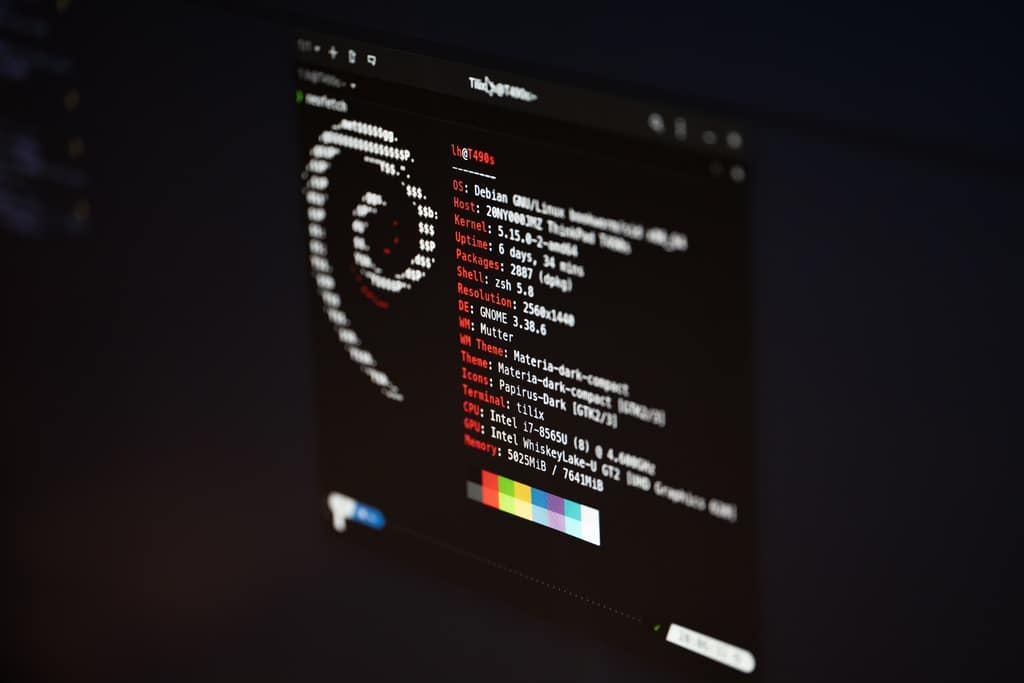Linux server - understand why it's the best option and which distros to use
The Linux Server is one of the best server options in terms of performance and performance.
For companies, this type of server may be the best choice, since it is very versatile and powerful.
The most interesting thing about Linux servers is that they are available in a wide variety of distributions, with different functionalities for all needs.
In this article, we will explain everything about Linux Servers. So, follow the reading!
What is a Linux Server?
The Linux server is a server created from the open source operating system, Linux.
For this reason, it is a server with great possibilities of uses, full of functionalities.
In this sense, Linux servers are quite capable of serving any company. They make it possible for apps, websites, and content to be made available quickly.
In addition, this type of server is able to administer networks, systems, databases, and internet services.
One of the main advantages of the server is that it is available by different Linux distributions.
Distributions are operating systems within Linux, with different qualifications, created by a community of developers.
Have you ever imagined accessing a server that can be constantly improved, with forums and communities available for discussion? This is possible with Linux servers.
Linux or Windows server? Learn the differences
 The main difference between the two servers is the operating system.
The main difference between the two servers is the operating system.
The simplest users, who use a device to watch some content or install an application, do not feel much difference.
This is because, regardless of the operating system, all services are being provided by a server connected to the internet.
However, when we think about hosting and other more technical terms, then yes, it is possible to point out differences. Check it out:
Programming language
If you develop a site from ASP, .NET, or C#, the use of Windows servers is mandatory, as soon as these languages were created by Microsoft and only work on that system.
The rest of the languages will work on Linux, such as PHP, Python, Perl, Ruby on Rails, and others.
Costs
Some service and application licenses are paid. On Linux, most applications are free and, when paid, are usually cheaper than those on Windows.
Services
Some services and applications are also created by Microsoft and can therefore only be used on the Windows server. This is the case with the Access or Microsoft SQL database.
On the other hand, there is a wide variety of services available on Linux.
Performance
Linux server performance is better in the sense that Linux’s technical features require less hardware.
Stability
The services used on Linux servers are more stable at the expense of Windows. That’s because there are Linux servers that work, without updates, for over a year, for example.
Safety
The security of Linux can be seen as superior to that of Windows, due to the structure of the administrator, users, and even folder and file permissions.
In addition, because it is open source, developers are frequently fixing problems and updating the available servers.
3 advantages of using a Linux Server
These are the biggest advantages of using a Linux server:
Linux server = stability
On Linux, it is possible to make changes to the service without having to restart the device in question.
That way, there is no need to be afraid to update the server while using your services.
In addition, because it is an open source system, a number of developers work every day to optimize the server.
There is a group of specialists who seek to find errors, security flaws, and other inconsistencies on the server and then fix it.
In this way, the Linux server works with a large capacity, without slowing down or reducing performance.
Linux server = security
Linux was created based on Unix in order to be a multi-user operating system. Thus, only the administrator can use certain functions, while users have lower permissions.
In any case, it’s clear that Linux is vulnerable to viruses. However, developers are always on the lookout for action.
Linux server = flexibility
Users have easy access to the source code. Therefore, when installing, it is possible to compile configurations and libraries according to the hardware of the computer where Linux is being installed.
Some features can be changed according to the work of a company, thus making a server aligned with the objectives of a business, for example.
Best Linux distros to use on servers
 Find out which are the best distributions to use on Linux servers:
Find out which are the best distributions to use on Linux servers:
Ubuntu
The Ubuntu server, also known as Ubuntu Server, is one of those that stands out the most in several aspects.
Managed by the company Canonical, it has several features inspired by the classic Debian.
For many, it is the best option because it has simple installation, easy hardware discovery, and commercial support.
Debian
Debian is another distribution option for using Linux servers. It was created in 1993 and has since inspired the creation of several distros, such as Ubuntu, Linux Mint, and Vyatta.
The distribution stands out for its stability. When a version is available, it has support for up to 5 years.
Unlike other distros, Debian has no commercial support because it is genuinely created by developers.
However, you can answer your questions with consultants spread all over the world.
Red Hat Enterprise
Red Hat’s operating system for servers is called Red Hat Enterprise Linux (RHEL).
It is based on the Fedora community. In any case, it stands out more than its inspiration, as it offers stability, durability, and high-quality support.
What makes this distribution the favorite of many companies is its support, which can last up to 10 years with each version released.
Are you starting your Linux studies or do you want to deepen your knowledge? Linux Certification can help you!
Linux certification: Linux courses with a fully didactic and applicable structure. Leverage your career by adding official certifications to it. Click and learn more!
Conclusion
So, now do you understand what the Linux server is and why it is one of the main options in the Information Technology (IT) market? If you enjoyed this article, we recommend reading the following: “How to get an LPI certification: EVERYTHING you need to know!” .